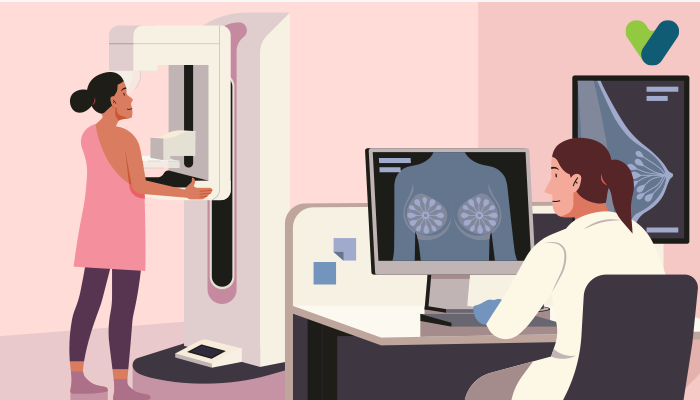There are numerous medical tests for women that are important throughout various stages of life. Yet, medical tests for women after 50 automatically assume greater importance since they are possible indicators of serious health conditions that need fixing or confirm whether one is in perfect health or not.
Let us have a look at some essential screening tests for women after 50.
| Age Bracket- 50 and above |
| Gender- Women |
| Test Types- |
| Hepatitis C |
| Mammogram |
| Pap Smear |
| Bone Density Test |
| Cholesterol Test |
| Colonoscopy |
| Blood Pressure |
| Blood Sugar |
Medical Tests for Women in Their 50's Why Are They Needed?
Regular health screenings for women 50 years old are a must to stay in the loop about your health and also about any potential illnesses that may bug you or escalate down the line.At the same time, they are important since menopause ushers in a major change for the body, and reports also indicate how close to 70% of people in this age bracket have at least one chronic ailment based on CDC (Centers for Disease Control and Prevention) reports. Have a chat with your doctor about the tests that you require and go ahead accordingly.
8 Medical Tests for Women Over 50
Here are some of the top medical tests for women that cannot be neglected (on your doctor’s advice of course!).1. Hepatitis C
This screening for women involves those born between 1945-1965. Baby boomers have a higher likelihood of suffering from hepatitis C infections as compared to other adults based on CDC reports. This is because they may have exposure to Hepatitis C before its discovery in the year 1989.This will be a blood test, checking for the presence of Hepatitis C antibodies in the same. Negative results are always a welcome development although in case of a positive result, the doctor will undertake follow-up testing to determine the infection.
2. Mammogram
Women should ideally get their mammograms done between 40-50 as per experts. Women should get this done every two years from the age of 50 onwards. This will help you discover tumors early on and check their spread. The mammogram works like an X-ray. If everything is fine, then you may have to get tested after 1-2 years.3. Bone Density Test
The bone density test may be needed in your 50s if someone in your family has a history of osteoporosis. Many women end up with osteoporosis-linked fractures after menopause and hence the need to get this X-ray done. If the results are fine, you may not require testing for a long period of time.4. Pap Smear Test
These tests help in the diagnosis of cervical cancer or any pre-cancerous lesions. A small cell sample will be scraped from the cervix at the time of the examination and examined for finding any changes.5. Colonoscopy
This is for women who have turned 50 and have risk factors like a family history of suffering from colon cancer for instance. A laxative solution is consumed on the day before the test. Thereafter, the colon and rectum lining is seen with a flexible and slim tube. The standard practice is to get a colonoscopy done once every decade.6. Cholesterol Test
This is a basic test for checking whether your cholesterol levels are excessively high and whether you have any risks of future heart disease. All you need to do is undergo a routine blood test to check your cholesterol. A good report indicates that you have lower risks of diabetes, heart disease and other ailments.Doctors usually recommend these tests periodically every five years for normal readings. High levels may lead to more frequent testing. Doctors may also prescribe medication or treatments along with recommending immediate lifestyle changes.
7. Blood Pressure Test
After the age of 50, you should check your blood pressure every time you visit the doctor’s chamber or office. High blood pressure leads to greater stress being placed on the blood vessel walls and impacts the brain and heart alike. The doctor will use a pressurized cuff for working out your blood pressure.The first figure or systolic pressure should not exceed 130 while the lower figure or diastolic pressure should not cross 80. If you have slightly high blood pressure, then the doctor may ask you to change your exercise regime, dietary plan and also get checked periodically. You may also be given pressure medication as a result. Doctors usually recommend blood pressure checks annually.


